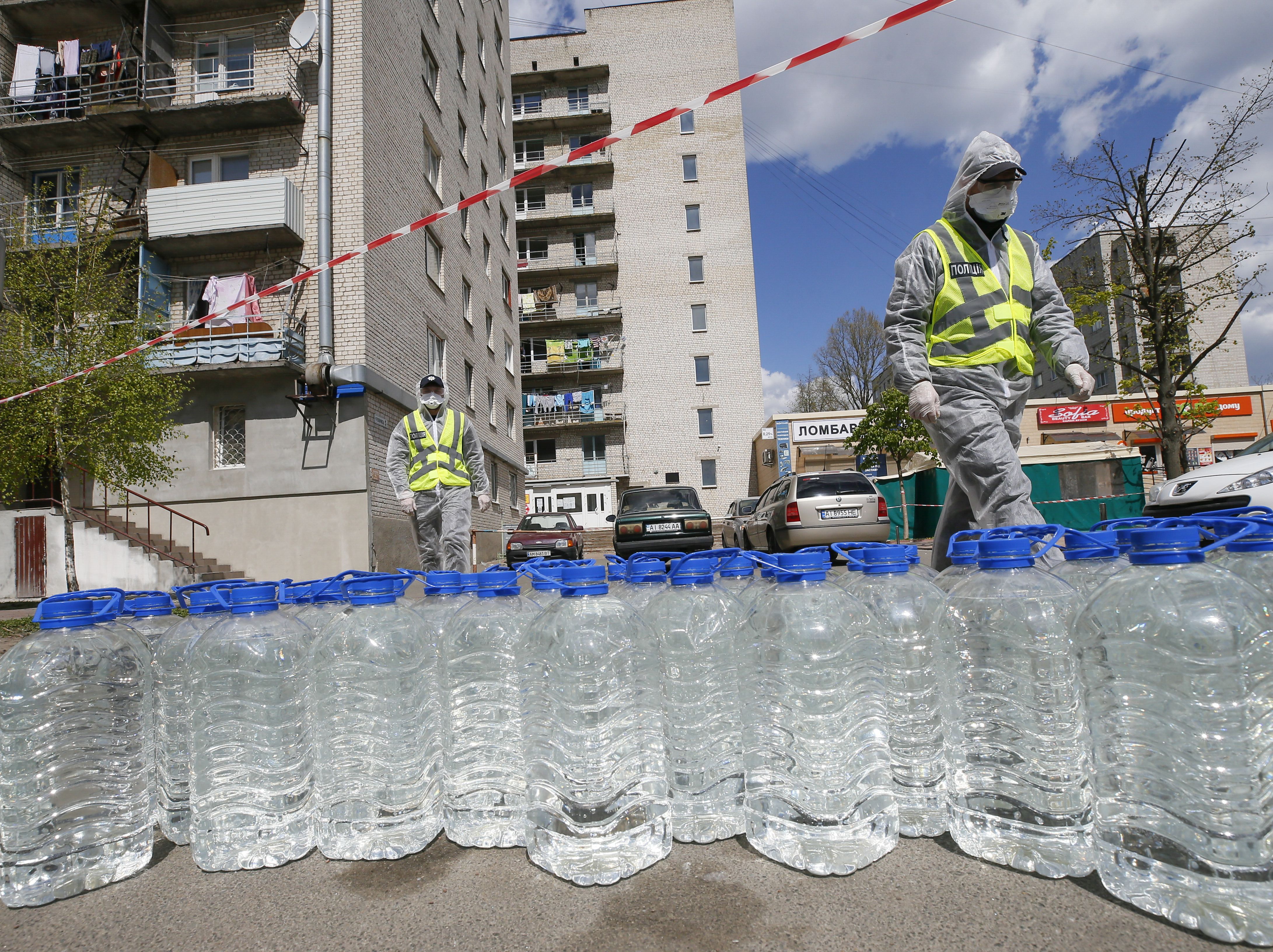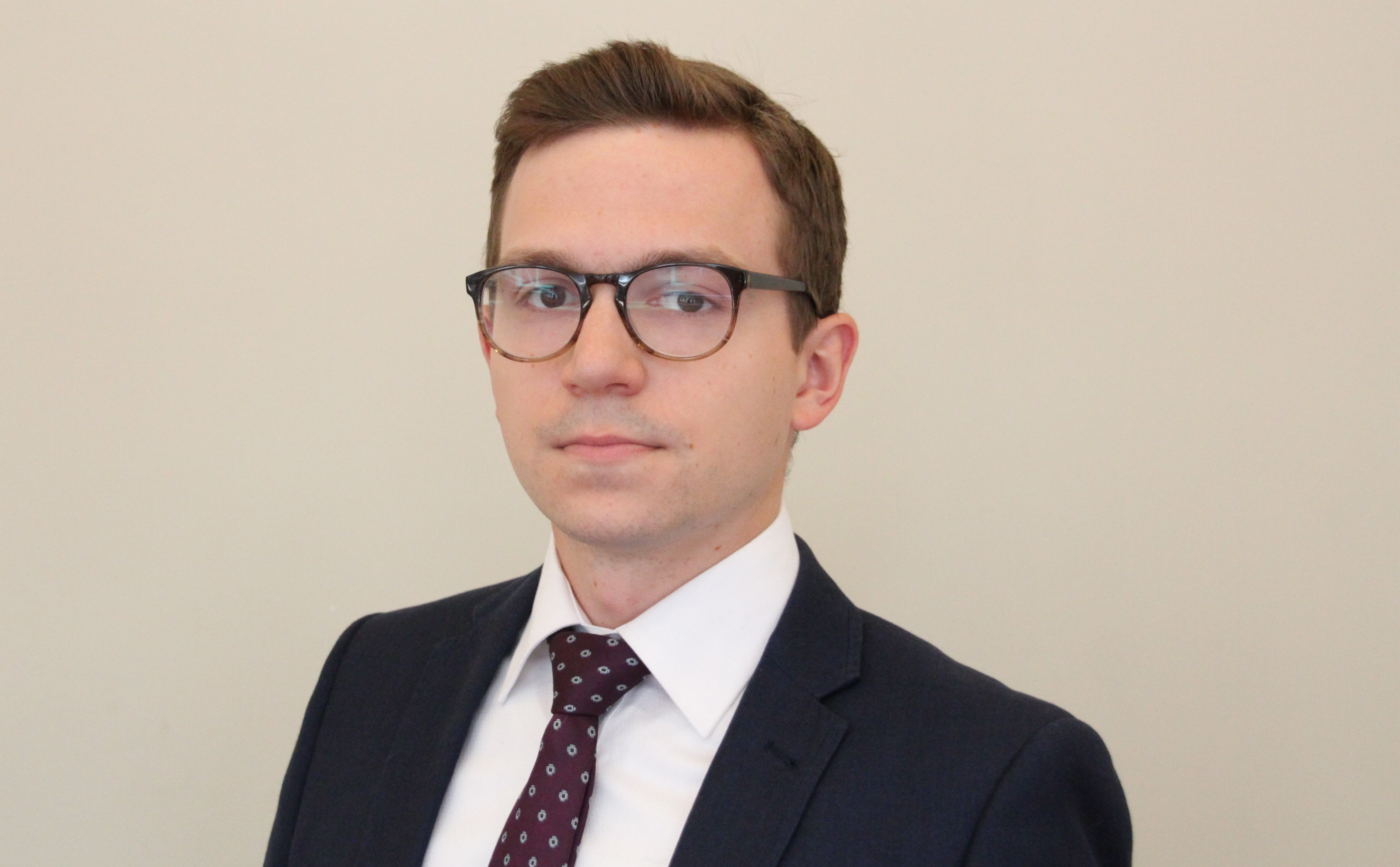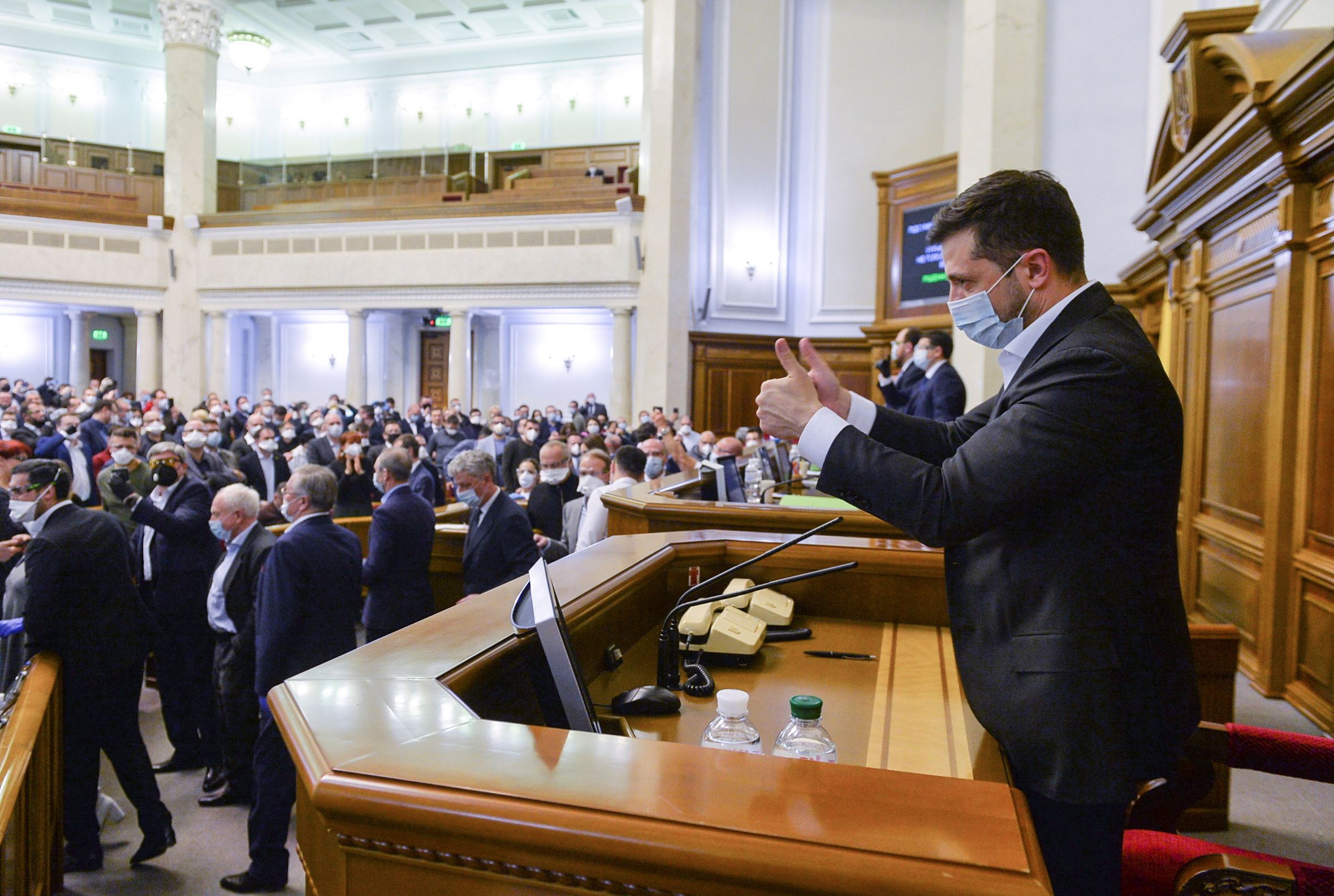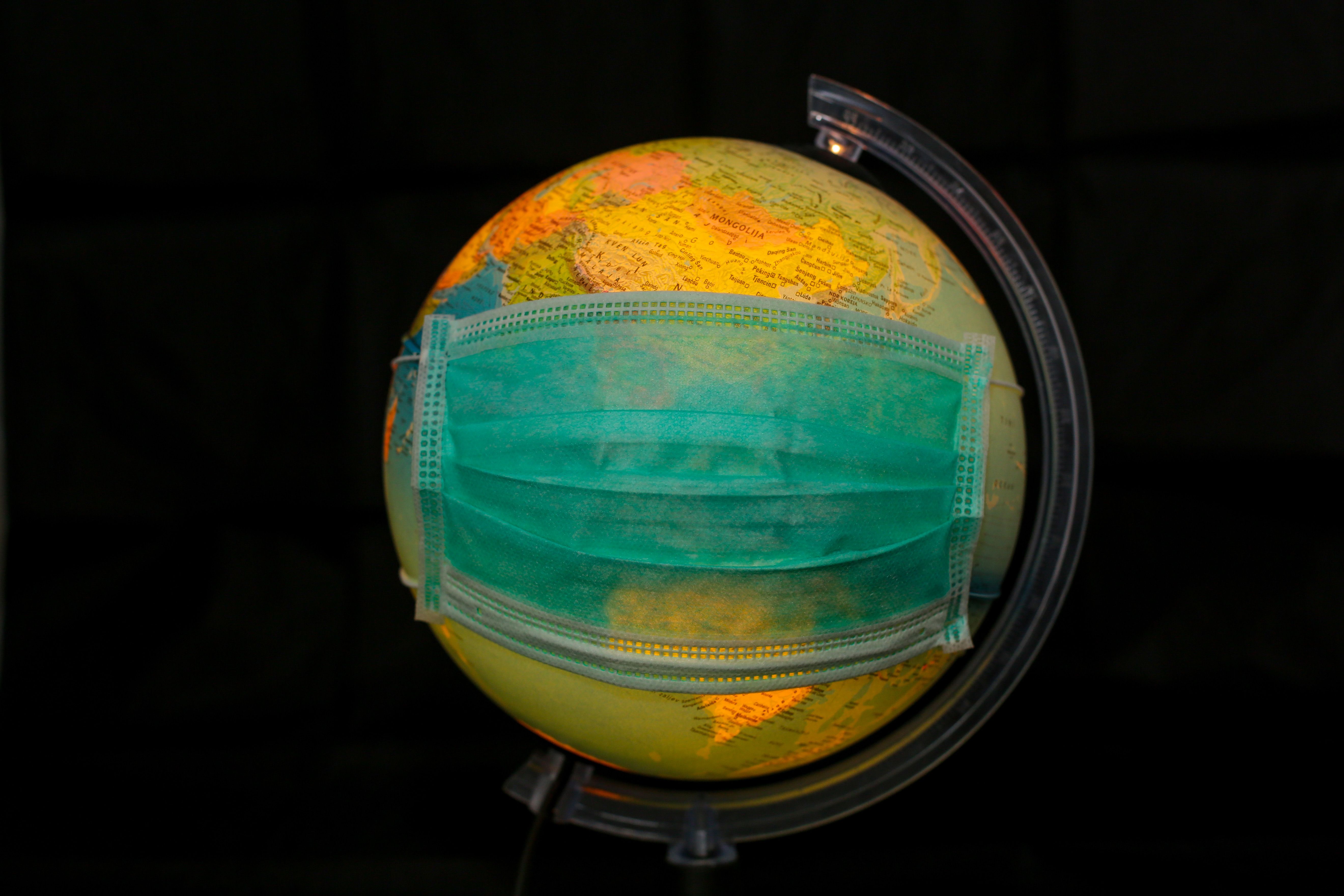Ukraine and COVID-19

The Course of the Pandemic in Ukraine
According to the official statistics, the COVID-19 pandemic began in Ukraine later than in other European countries—the first case was detected only on 3 March 2020. By 27 April 2020, the Ministry of Healthcare reported 9,009 infected people, 220 of whom had died (the data do not include the occupied areas in Donbas or Crimea). At that time, a little over 93,500 tests were performed (about 2,500 per million inhabitants, 2.5 times less than in Poland), which is the lowest number in Europe. The actual scale of the disease is probably much greater.
The government’s actions turned out to be insufficient in light of the numerous Ukrainian labour migrants returning from countries affected by the pandemic. On 12 March 2020, schools were closed, border crossings limited, and self-isolation recommended. On 17 March, the borders were closed to foreigners, long-distance passenger transport was suspended, and urban transport was restricted. On 25 March, the government declared the pandemic an “extraordinary situation” (provided for in the Civil Protection Code). This is not a state of emergency, but it allows the government, for example, to forcibly isolate the infected. However, it was not until 30 March that a mandatory quarantine was introduced for all those coming from abroad, but by that time they had been travelling around the country relatively freely, returning to their homes. Since 4 April, in public, a maximum of two people may move about together (excluding children) but with a face mask. On 7 April, other border crossing points were closed (there are 19 total, including two with Poland).
The pandemic response is directly coordinated by President Volodymyr Zelensky. His assumption of responsibility for the state’s actions stems from his lack of trust in the Cabinet of Ministers, including the government’s ability to control the situation at the local level. The regions are often ruled by opposition politicians, who, especially at the initial stage of the pandemic in Ukraine, introduced regulations without regard to the central government’s actions. For example, the mayor of Kharkiv, Hennadiy Kernes, flagrantly refused to execute the government’s decision to close the underground. Problems in managing the crisis led the president to seek help from oligarchs and representatives of big business. During a rare meeting with oligarchs at Bankova, the president’s official office, he asked them to act against the spread of the coronavirus in the districts where they have assets. They then took direct control over regional anti-crisis headquarters and, among other aspects, equipment purchases. Oligarch Oleksandr Yaroslavsky, thanks to his acquaintance with Chinese billionaire Jack Ma, organised the delivery of medical equipment from China.
Counteracting the virus in Ukraine has been hindered by the poor situation with the country’s health service. In 2019, Ukraine was ranked 94th out of 195 countries in the Global Health Security Index. Corruption and negligence, including the lack of purchases of medical equipment and personal protective equipment, not only has resulted in a lack of trust among citizens in the healthcare system but also the spread of the virus. In Ukraine, one in five infected people is a member of medical staff. Another problem is the low level of public discipline (e.g., there have been mass escapes from hotels designated for quarantine) or the attitude of the clergy of the Moscow Patriarchate, who, unlike the hierarchs of other denominations, opposed the government’s actions and called for self-isolation to be ignored.
Impact on the Economy
The Ukrainian government estimates that the economy will contract by almost 4% this year due to the coronavirus, although the International Monetary Fund (IMF) expects a 7.7% decline. Small and medium-sized enterprises (SMEs) will be hardest hit by the crisis. Due to the quarantine, around one-third of the economy has already ceased activity. About 700,000 SMEs, employing between 3.5 and 4 million people, have already stopped working due to the quarantine. The government predicts an increase in unemployment by 1.3 p.p. to 9.4%, but this may worsen with the return of economic migrants who have lost jobs in EU countries and Russia due to the coronavirus. In March alone, about 270,000 labour migrants returned to Ukraine.
The probability of a recession has prompted the Ukrainian authorities to speed up negotiations with the IMF on a new loan of about $8 billion. A law liberalising trade in agricultural land was adopted and another law (passed first reading) to prevent the return of banks nationalised after 2014 due to the insolvency of their previous owners (usually oligarchs) is in the works, and both are required to obtain the assistance. These laws had been postponed before the crisis. In addition to IMF support, Ukraine can count on macro-financial assistance from the European Commission of €1.2 billion and €190 million for immediate and medium-term needs to counter COVID-19.
The government will allocate about $2.4 billion to this effort and to shielding the economy (about 2% of GDP), but these funds are small in relation to the needs. For example, Poland will allocate about 10% of its GDP to the same. However, the low government spending in Ukraine will render the actions of the oligarchs and businesspeople more important. Most of the money to fight the coronavirus was allocated by Yaroslavsky ($15 million), Rinat Akhmetov ($11 million), and Victor Pinchuk and Volodymyr Kostelman ($4 million each). However, these are insignificant amounts in relation to their overall wealth. Akhmetov, the richest oligarch and one that has good relations with President Zelensky, is worth about $2.8 billion.
The Situation in Donbas
So far, no COVID-19 case has been officially reported on the front lines. However, infections in the Armed Forces of Ukraine are reported outside the combat zone, which has led to the suspension of passes and the cancellation of the spring conscription. Some preventive measures have been taken at the front (including an order to wear face masks), but their effectiveness is limited. There is a lack of reliable information about infections on the pro-Russia side (Russian forces and so-called separatists).
The effects of the pandemic may be severe for the inhabitants of occupied Donbas where there is a lack of tests and the healthcare is worse than in other regions of Ukraine. Although the occupation authorities have officially recorded 148 cases of infection, the scale of the pandemic is probably much greater. The area has been physically isolated, with few exceptions, from traffic across the front line and the possibility of crossing the border into Russia has been suspended. The authorities of the so-called People’s Republics, controlled by Russia, have also limited the possibility of an OSCE Special Monitoring Mission. Due to the difficult humanitarian situation, on 3 April 2020, the International Committee of the Red Cross sent a special transport containing medical and personal protective equipment to these areas.
Conclusions and Prospects
The outbreak of the coronavirus in Ukraine has highlighted the problems the authorities’ have in enforcing decisions on the regional level. At the same time, it confirmed the strong role of oligarchs and representatives of big business in political life. In the short term, their involvement may slightly help in the fight against the epidemic. In the long term, however, it will result in a drop in confidence in the president and the government and will strengthen the central authorities’ dependence on the oligarchs, who may then seek to compensate for their assistance by forcing the authorities to impose legal solutions beneficial to their financial interests.
The deteriorating economic situation in Ukraine forced the authorities to meet the IMF’s expectations to avoid the risk of financial illiquidity. To this end, it is necessary to adopt the law on nationalised banks, but it is opposed by some MPs in the Zelensky-controlled Servant of the People faction, which makes it necessary to gain the support of some opposition politicians. This may further deepen the divisions within Servant of the People and cause it to lose its parliamentary majority. It is also possible that after receiving the loan, parliament will introduce amendments to the law on banks allowing the oligarchs (mainly Ihor Kolomoyskyi) to obtain compensation for the lost assets, which would hinder further cooperation with the IMF.
Because of its poor healthcare system, the lowest percentage of testing in Europe, and lack of coordinated crisis management, it is likely that the pandemic will last longer in Ukraine than in other European countries. The Ukrainian authorities will seek international assistance in fighting the virus and the economic consequences of the pandemic. The EU may continue its support for Ukraine and other Eastern Partnership countries by creating a mechanism for joint purchase of resources to counter infections and COVID-19 and, in the long term, providing consistent medical and material support to these countries.






